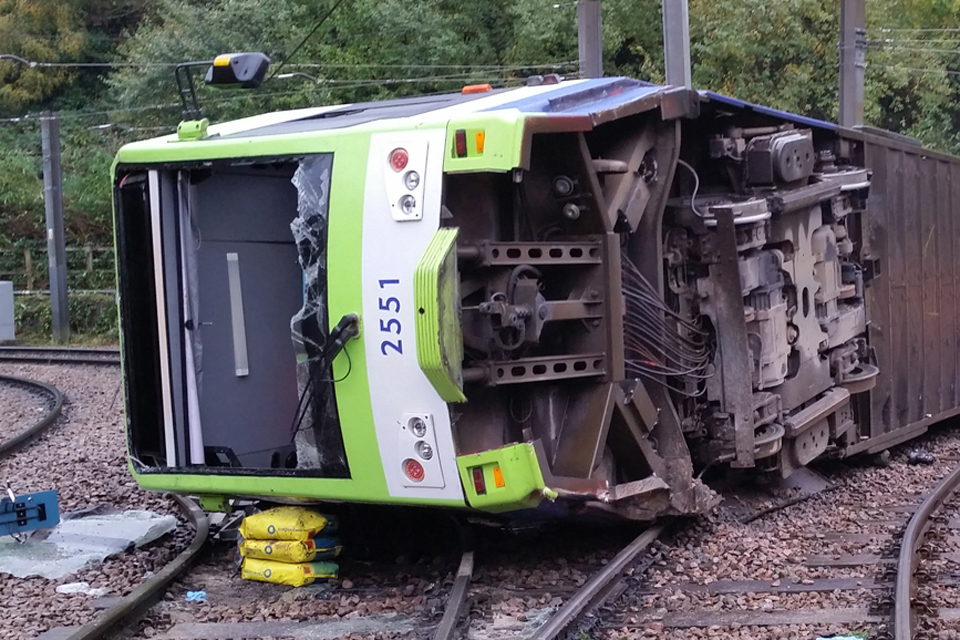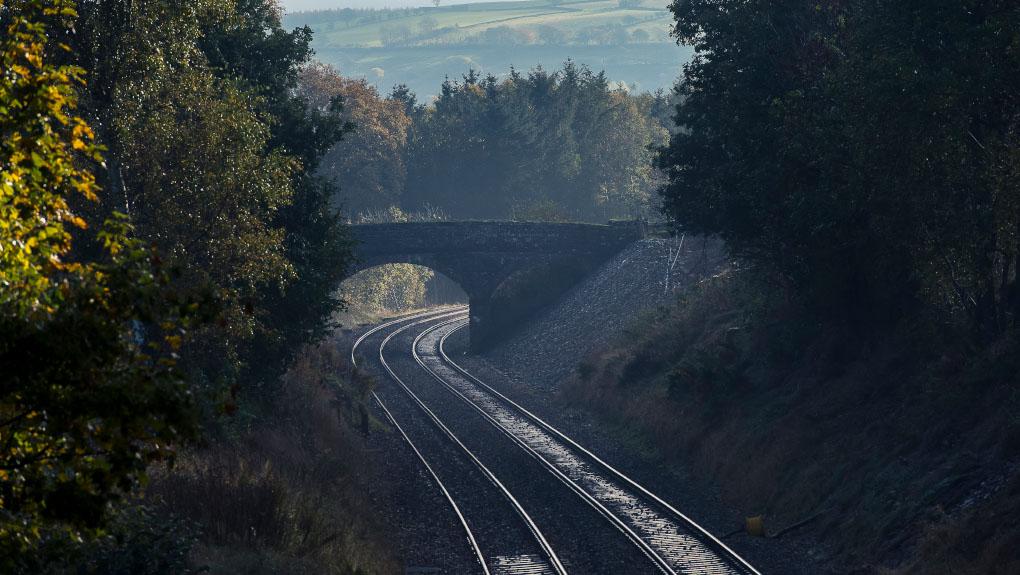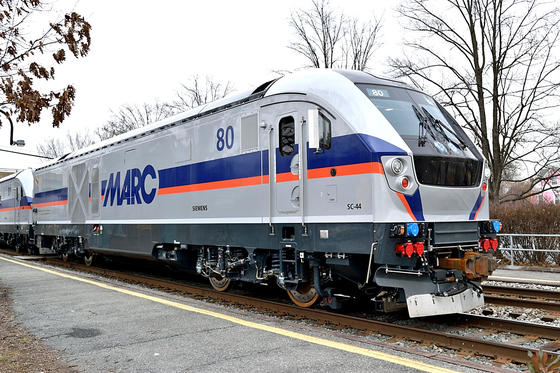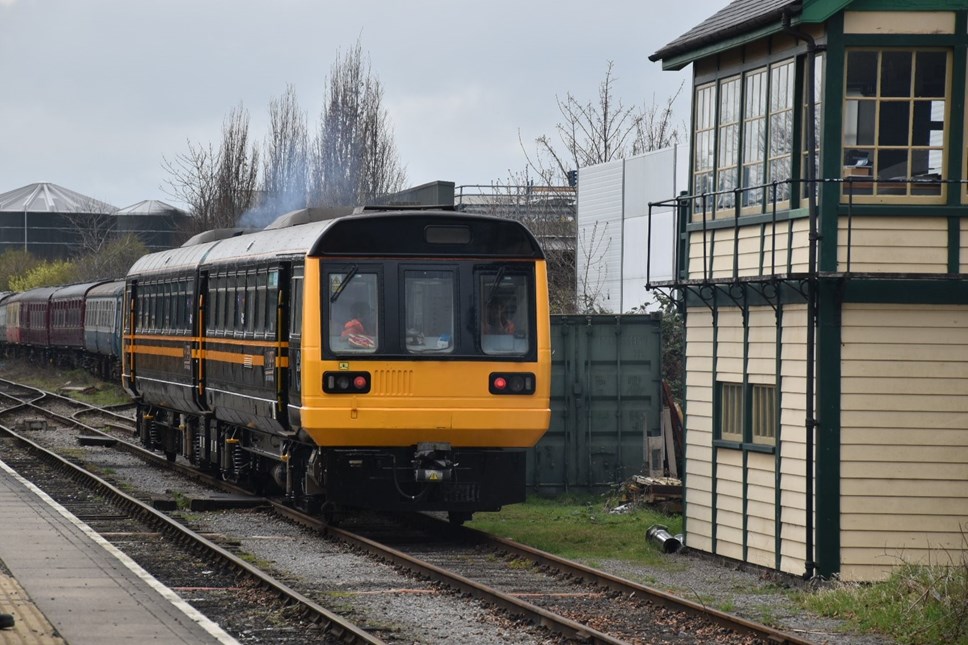AARC Professional Services (AARCPS) has now completed its second operational training course for Amey Infrastructure Wales (AIW).
Delivery of its electrical control operator (ECO) training was completed in May just a few weeks after the completion of its highly praised signaller training.
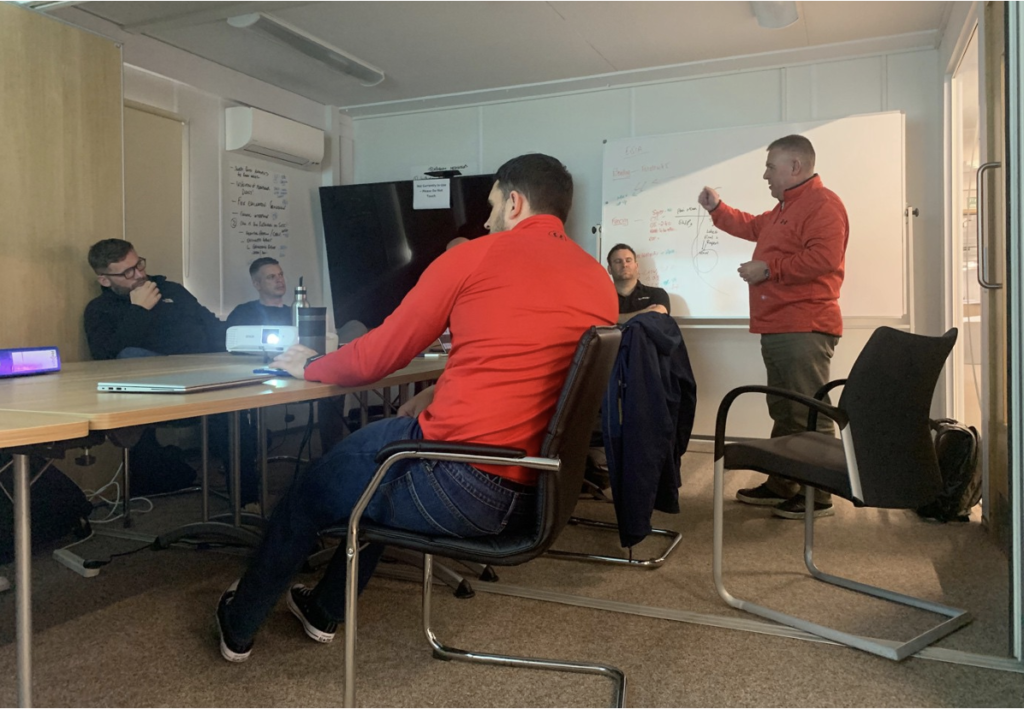
The need for ECO training arose due to the Transport for Wales (TfW) Core Valleys Lines’ upgrade; part of which is the provision of 25Kv OLE electrification and the siting of an electrical control room (ECR) at a new integrated control centre (ICC) at Taffs Well.
This required the recruitment, training and assessment of an ECO resource to manage electrical supply and emergency response for the newly-installed OLE and associated infrastructure.
Eight new AIW staff undertook the training; only one of which had any previous ECO experience.
Electrical Control Operator (ECO) Training and Assessment
Because there can be a wide range of assets, system designs, business processes and control systems to be considered – as well as the generally small number of people working in this environment – organisations don’t always have access to suitably competent people to develop and undertake ECO training and competence assessment.
This can lead to extended training periods, long periods of on-site mentoring and increased organisational costs. With these considerations, AIW asked AARCPS to design and deliver a bespoke ECO training solution that met its needs.
This was developed and written by AARCPS Senior Consultant Dan Barrett, with support from Senior Consultant Dave Warren, an expert in electrical control simulators.
Barrett says:The most important elements to our approach were having expert resources within the team and understanding and determining the ECO role, business processes and role responsibilities.
This allowed me to take a principle-level approach rather than asset or system-specific and develop a risk-based training needs analysis (RBTNA) that focused on their specific needs and avoided introducing irrelevant material; which can happen.
Robust, Agile and Cost-Effective Specialist Training
AARCPS completed the ECO training and assessment in just 18 weeks. This ambitious target was met by following a detailed training plan that the trainees bought into.
AARCPS Senior Consultant Tony Manktelow says:Completing the training so quickly was predominantly down to explaining the principles of operating a traction power system such that the ECOs clearly understood why they were required to take specific actions.
It was then down to training material that was specific to the ECOs and Cardiff system.
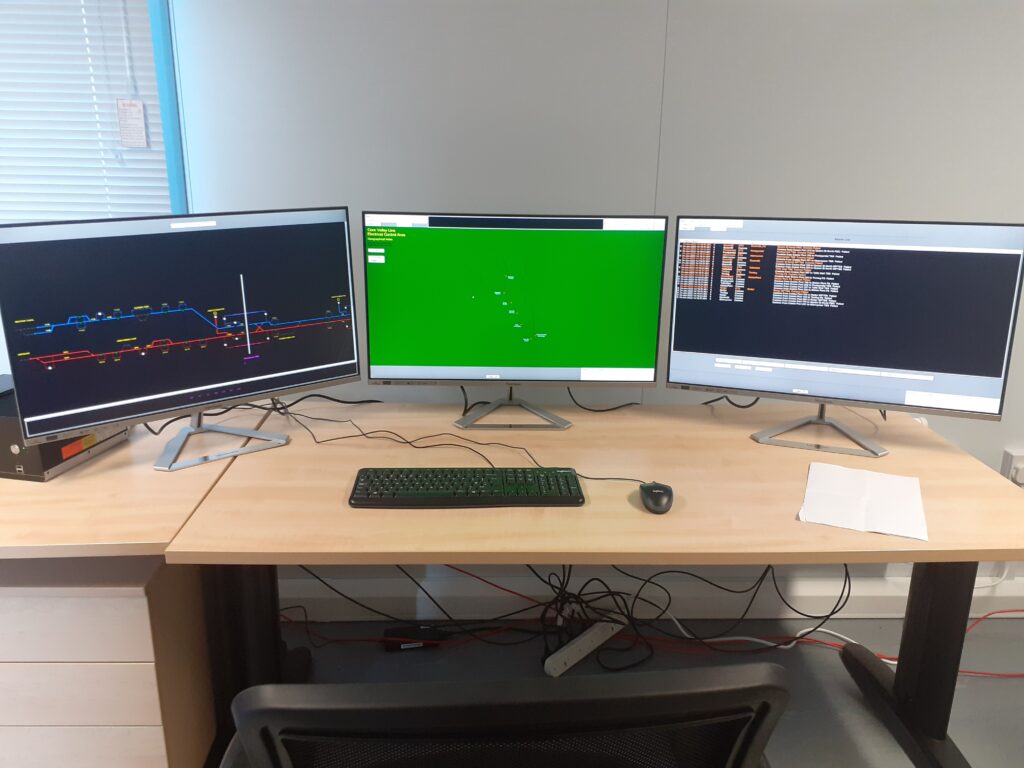
Based on learnings from this delivery, and the feedback provided, Barrett believes that – with the correct materials – future ECO training and assessment could be delivered in 12-15 weeks.
“This would be considerably quicker and much more cost effective than other organisations are currently achieving,” he points out.
Effective Use of Simulators
The importance of having a simulator, and more importantly, a trainer that had considerable experience in loading and applying scenarios, is something that should not be underestimated.
This was particularly pertinent for AIW, which didn’t have prior experience or access to electrical control rooms.
Barrett notes:We couldn’t have achieved our 18-week target without the simulator.
Having the simulator on the same site as the classroom meant trainers could cover a topic and then apply the learning immediately after.
Barrett continues:We also made good use of Microsoft Teams as I was able to produce scenarios that my co-trainer uploaded onto the simulator and then put the candidates through their paces.
I was able to be remote but play many characters in the scenarios and we could record the session on Microsoft Teams. This allowed us to revisit the scenarios and listen to the verbal communications, which is extremely important, as ECOs are the lead communicators in rail safety communications.
Following completion of the classroom and simulator training, ten days of floor-walking supportive development took place at the ICC.
Manktelow notes:Having only operated a simulated environment up to going live, the ECO’s were competent but not fully confident.
So, having an experienced ECO sat with them, answering every question they could come up with, but letting them operate the system, and encouraging them, improved their confidence.
Process of Assurance and Assessment
The consultancy called on industry experts Manktelow and fellow Senior Consultant John Porter to undertake independent assurance activities and end-of-training assessments respectively.
The internal quality assurance consisted of reviewing the training materials and providing feedback for continuous improvement to the training developers.
Manktelow explains:I sampled a good representative selection of inputs and outputs, across all trainers, assessors and trainees. The sample was applied at every stage of the training and assessment process, so we got a good, clear picture of consistent application.
Signaller Conversion Training
After the success of AARCPS’ initial signaller training (IST), AIW also asked the consultancy to return to Cardiff to deliver conversion training for all its signallers.
RBTNA was again undertaken, but in this instance the candidates had varied levels of experience and AARCPS needed to create modular courses that catered for all.
Greg Edwards, a Senior Consultant and Training Specialist at AARCPS, explains:As an example, the new signalling centre at Taffs Well uses the WESTCAD signalling control system and some signallers already had competence on this system and merely needed a refresher course that identified changes to system functionality etc. Others had never used the system and needed to learn it from the ground up.
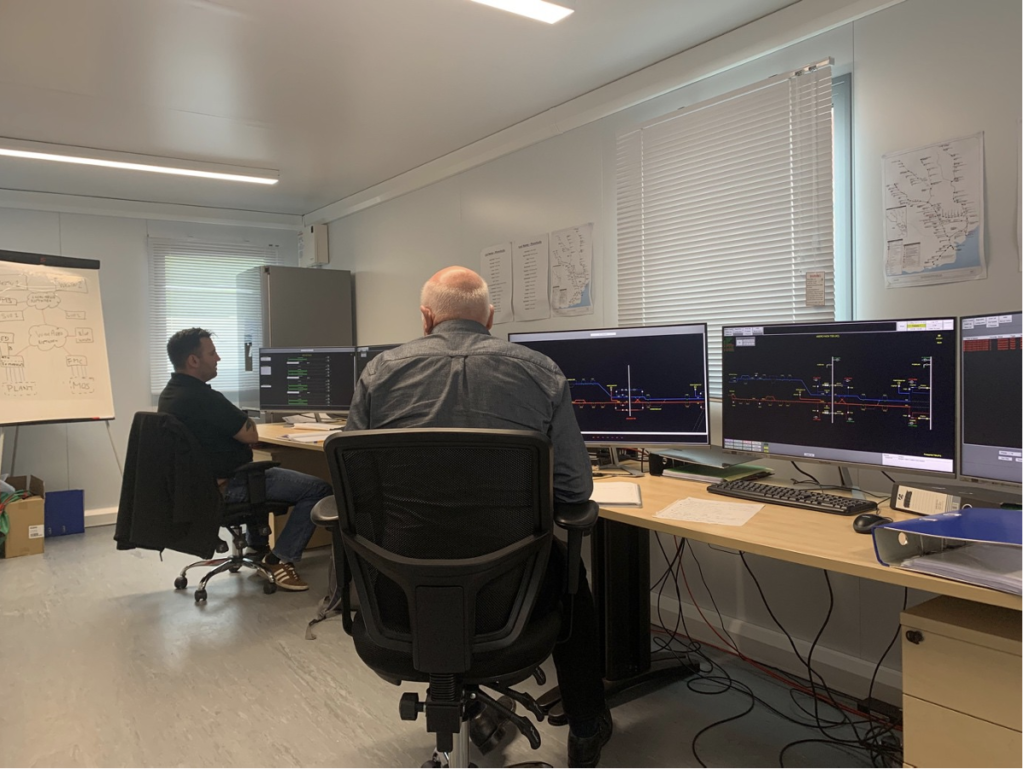
A useful method used was to mix signallers with different levels of experience into the same learning group.
Edward enthuses:We encouraged those with experience to impart their knowledge to those with none. This is a great way to develop growing confidence in experienced signallers. All of the training requirements were planned in advance and the trainer steered all of the sessions to the right outcome, but this approach allowed for a more organic learning environment based on signallers’ own list of priorities for learning a new system.
As a training provider, we really want trainees to take ownership of their learning and feel as though they are shaping their experience. I really believe that we get a greater level of engagement when we do this.
The assessment for this training was undertaken by AIW, using the criteria created by AARCPS. This used a variety of methods including observation of simulated activities, verbal questions and professional discussions to determine their wider understanding of their role.
Edwards says:The assessment put the candidates through their paces quite extensively but it is also a nail-biting moment for us as trainers.
Whilst the assessor has visibility of our competency criteria, we have no idea what scenarios may be requested nor what verbal questions will be asked of the candidate.
This is a great way to ensure that the level of independency is maintained and gives all parties peace of mind that all the topics and competencies have been covered robustly. I’m happy to report that none of the trainees were caught off guard by something that hadn’t been covered. From AARCPS point of view, that’s a hugely gratifying outcome.
Support to Get Candidates to Required Level of Competence
Although this wasn’t needed in the case of the conversion training, AARCPS had developed procedures that could be followed if a candidate was found to be ‘not yet competent’ by the assessor.
In such a scenario, feedback would be provided on the areas that need work. This might be relevant to skills or knowledge competency, or make reference to non-technical skills and behaviours which need to be bolstered to better demonstrate positive behaviours associated with them.
The candidate then undertakes a period of review and refreshment in preparation for the next assessment which is set for a pre-determined date approximately four weeks later.
Pilot Courses a Resounding Success
Throughout the training delivery and assessment, feedback from the ECOs was highly positive and strong long-term relationships have been built with AIW off the back of this successful delivery.
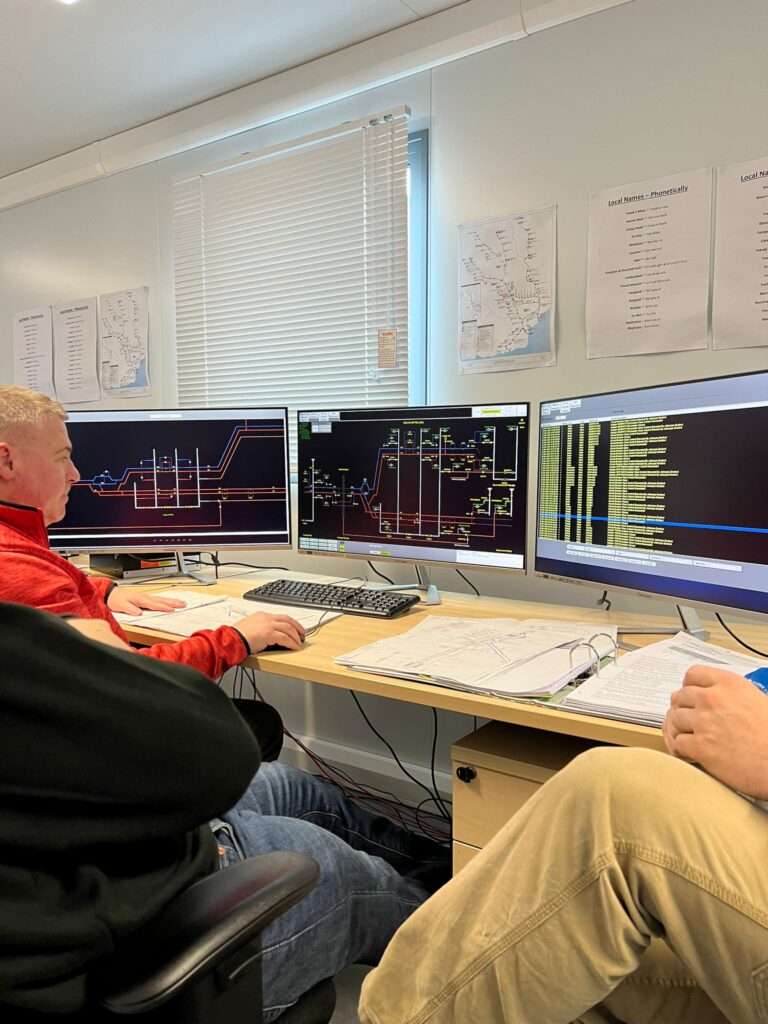
Edwards says:In terms of learnings, I would say that I am incredibly happy with our pilot courses. Feedback from the candidates and the client have been really positive.
AIW gave us free rein to deliver something slightly different to the norm, an opportunity that we grabbed with both hands and we’re very grateful for the trust they put in us.
Whilst it would be remiss to say that I wouldn’t change anything, I do believe that we have laid a foundation for really great training offerings for clients in the future.
AARCPS – Bespoke Rail Training for Your Organisation
AARCPS has over a decade’s experience providing bespoke operational training materials to the rail industry. The consultancy is able to tailor training to meet clients’ specific requirements and its experts have the ability to apply their training methodology to most aspects of rail operations.
If you’d like to find out how AARCPS could support your organisation’s training needs, please visit www.aarcps.co.uk or email [email protected].



